The CMP Review — Week of December 16
December 16, 2024

Shortly before I began reading The Wind in the Willows with my Form 1 students, I discovered a craft book with patterns for how to make felt versions of the story’s characters. Inspired to create these as companions to our reading, I decided to make them “for the kids” (but maybe secretly also because I love making things). The process of creating them was quite enjoyable, but the impact on our little classroom was even more rewarding.
The felt friends not only enhanced our reading of The Wind in the Willows, helping bring Mole, Ratty, Toad, Badger, and Otter to life, but they also helped my newest student find her voice and confidence in narrating.
“The teacher who allows his scholars the freedom of the city of books is at liberty to be their guide, philosopher and friend; and is no longer the mere instrument of forcible intellectual feeding.” (Charlotte Mason, Vol. 6, p. 32)
@tessakeath
December 17, 2024
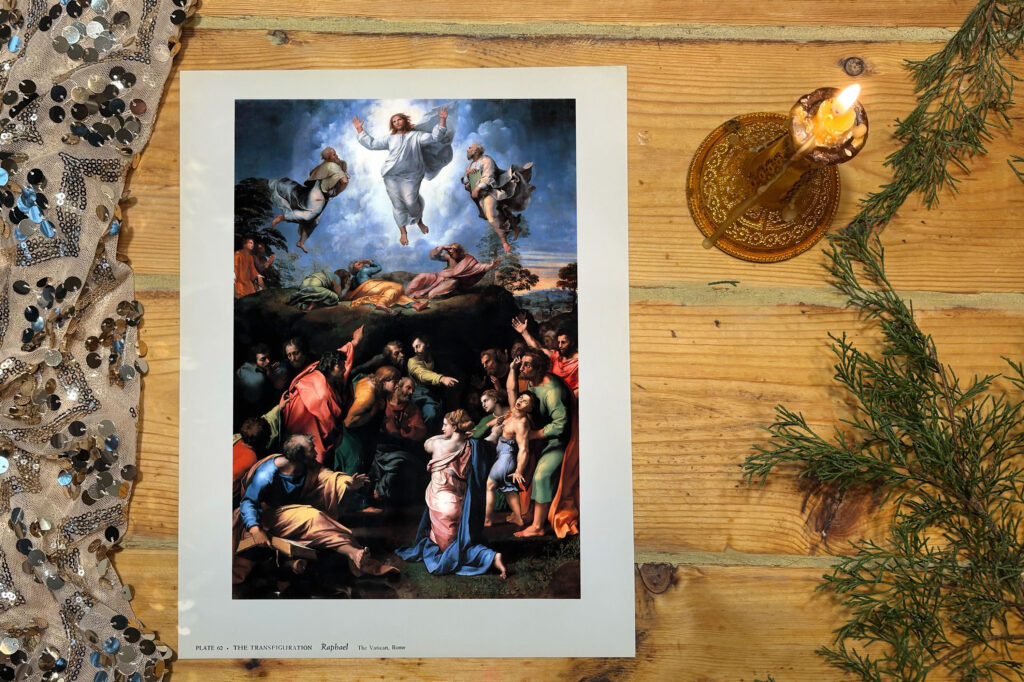
Charlotte Mason opens Home Education with a beautiful section entitled “The Child’s Estate.” There she quotes William Wordsworth declaring,
trailing clouds of glory do we come
From God, who is our home:
Heaven lies about us in our infancy!
But she omits the latter part of the stanza:
And by the vision splendid
Is on his way attended;
At length the Man perceives it die away
And fade into the light of common day.
In 1918, Mason’s dear friend Francis Lewis cited the whole stanza and asked the poignant question: “If education is the calling out of latent powers, the helping to develop what is already there; why should not ‘the vision splendid’ ‘shine more and more unto the perfect day?’”
In this Advent season we invite you to meditate with Rev. Lewis on God’s glory and His role in education. Does heaven lie about us only in our infancy? Or can a glimpse of heaven always be a part of our homes? Read or hear his challenging and inspiring sermon here.
@artmiddlekauff
December 18, 2024
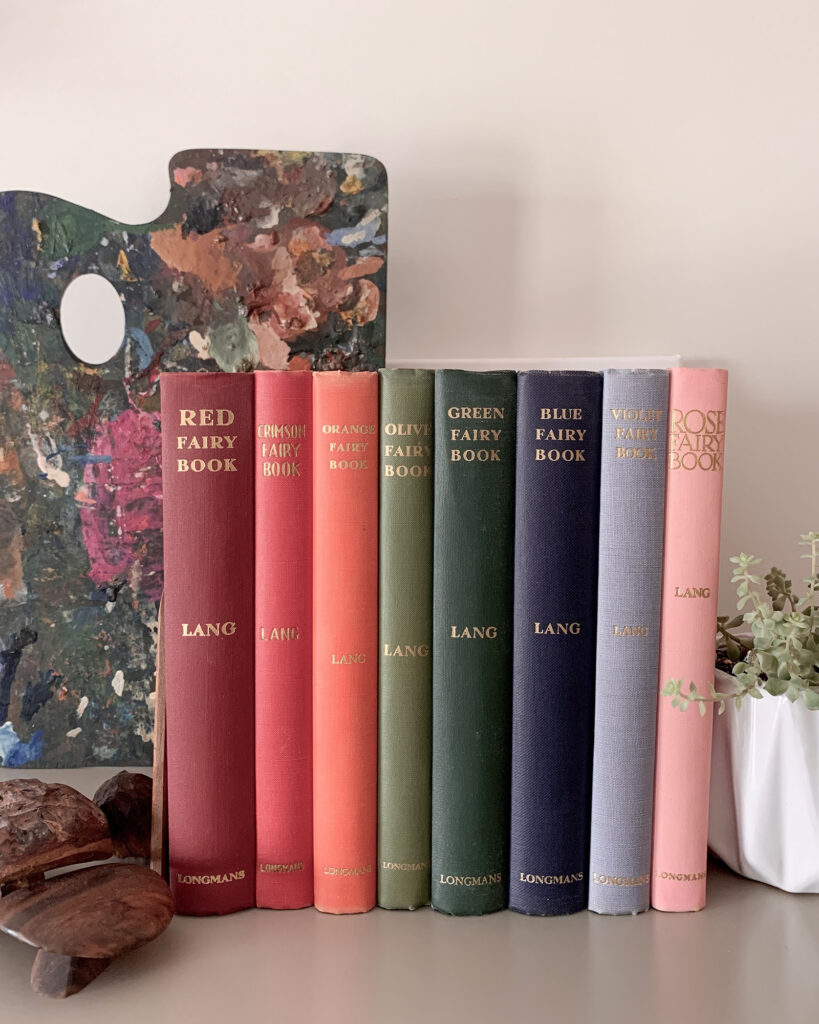
Literature, art, and music are three great possessions we can give our children for life. Not only will they bless them for a lifetime, they will be there during life’s trials.
V.M. Hood tells us, “When the clouds of life drift about your children, these three will lead them through the mists to the mountain tops, and there they will find that the sun they had thought obscured is always shining in the Eternal Heavens.”
“Reading in the Nursery,” PR28
@rbaburina
December 19, 2024
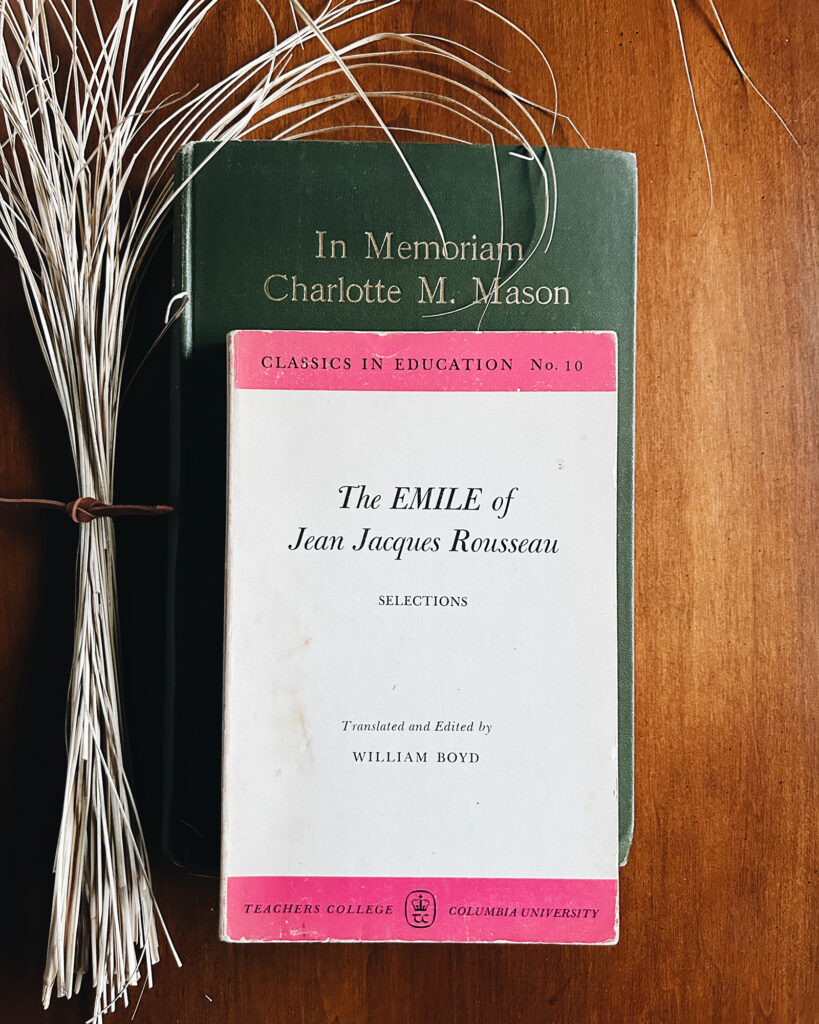
“Her ideas about children are, you want to say, from Émile by Rousseau, but she probably never read it,” mused Martin Cothran about Charlotte Mason on the December 4 episode of the Classical Et Cetera podcast by Memoria Press.
Well of course Miss Mason read Émile; in fact she quoted it extensively, and often favorably. An often-overlooked article by Mason is “Two Educational Ideals,” originally intended to be part of her final book. In the paper she painstakingly evaluates one idea after another from Émile, because “as long as education remains the concern of most men and women,” she writes, “we shall continue to follow [Rousseau’s] lead; but because there is much dross with the gold, we must discriminate and eliminate.”
Cothran also observed an affinity between Mason and the “Romanticists.” But this too is no revelation. It was recognized as early as 1923, the year of Mason’s death, when M. E. Sadler wrote, “Through Ruskin and Thomas Arnold of Rugby, [Mason] was in direct succession from Wordsworth” (In Memoriam, p. 19). In fact, Mason quoted Wordsworth, the inaugurator of Romanticism, more often than any other writer.
I listened to both episodes of “Charlotte Mason Explained: A Classical Education Perspective” and I enjoyed them. Admittedly, I didn’t learn anything new about Charlotte Mason. But I was happy to see that even a cursory glance at the Twenty Principles by Classical Educational theorists reveals many of the foundational differences that separate Mason from the classical tradition. Bravo to Classical Et Cetera for its bold conclusion. Quod erat demonstrandum.
@artmiddlekauff
December 20, 2024
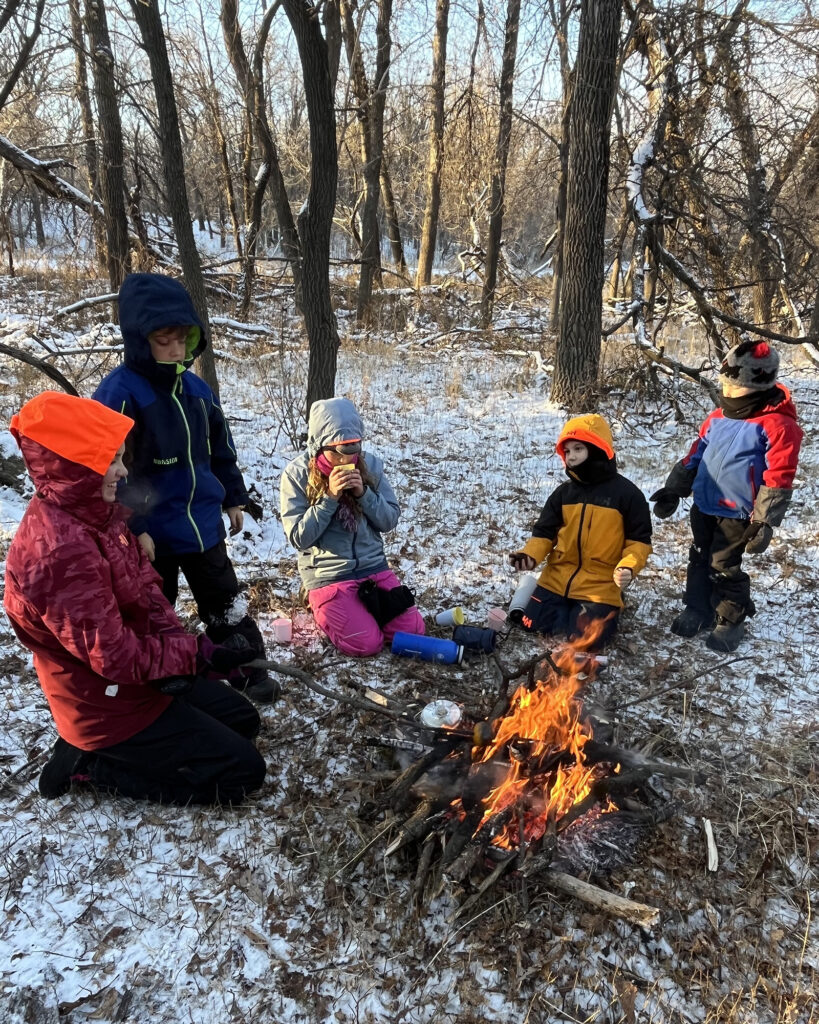
We have a few spots in our neighbourhood where we like to hang out and build a fire with our friends!
One of these places is a lovely riparian wooded area here on campus (new word for today, riparian, things that exist alongside a river) that provides us with a lovely place to play as well as with ample firewood.
The children have a grand time, wandering around, gathering up tinder and kindling and fuel for the fire.
It’s not always easy to get a fire going with snow on the ground, and sometimes our fires are bigger or smaller, but they always amount to a couple of hours of fun spent outside, tending the fire, cooking new things over it, and just chatting and laughing.
This was our first time making tea out there (that silver disc is the top of our kettle). We sometimes roast marshmallows, or, when the moms are feeling particularly ambitious, hot dogs and bannock. But we always have fun!
Do you have a place you go to build a fire with your friends?
@antonella.f.greco
December 21, 2024

“Another realm open to Intellect has an uninviting name, and travelling therein is difficult, what with steep faces of rock to climb and deep ravines to cross. The Principality of Mathematics is a mountainous land, but the air is very fine and health-giving, though some people find it too rare for their breathing. It differs from most mountainous countries in this, that you cannot lose your way, and that every step taken is on firm ground.
“People who seek their work or play in this principality find themselves braced by effort and satisfied with truth. Intellect now and then calls for the aid of Imagination as he travels here, but not often. My Lord Attorney-General Reason is his chosen comrade.”
— Ourselves, Book I, p. 38
@artmiddlekauff
📷: @dave_stillwell
December 22, 2024
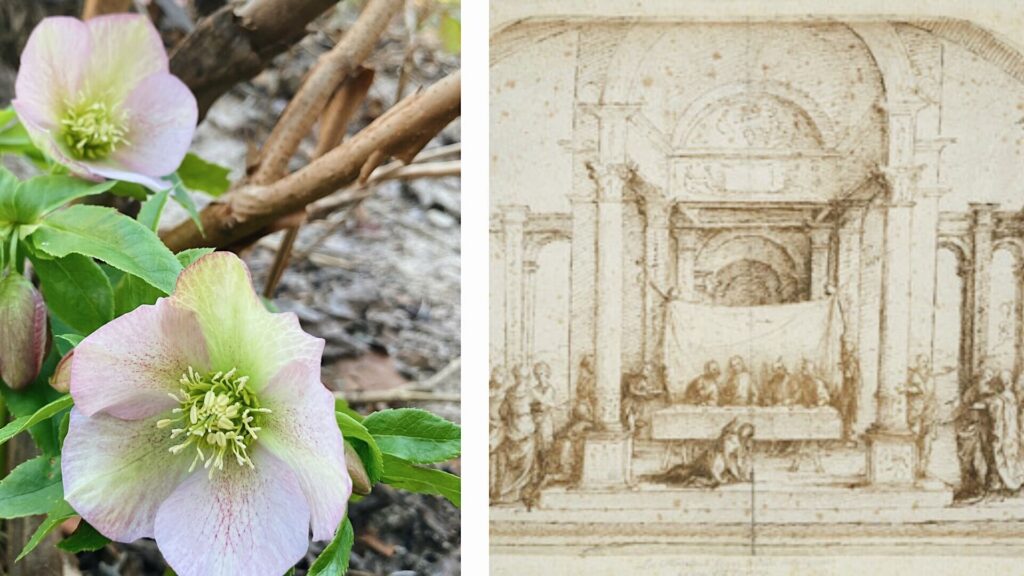
“Rabbi, to dine with me, wilt please?” asked the Pharisee. And Charlotte Mason imagined the enticements the man offered to Christ: a cool chamber, a cup of chosen wine, and some quiet talk. But allurements were unnecessary in this case, for Christ comes willingly to any who invite Him. Although when He arrives, what will He say?
In her poem “Woe unto you, Pharisees,” Charlotte Mason brings Luke 11:37–44 to life. The quiet talk ends in silence. Yes, Christ comes when He is invited, but He does not always say what His host wants to hear. Read or listen to Mason’s poem here.
@artmiddlekauff